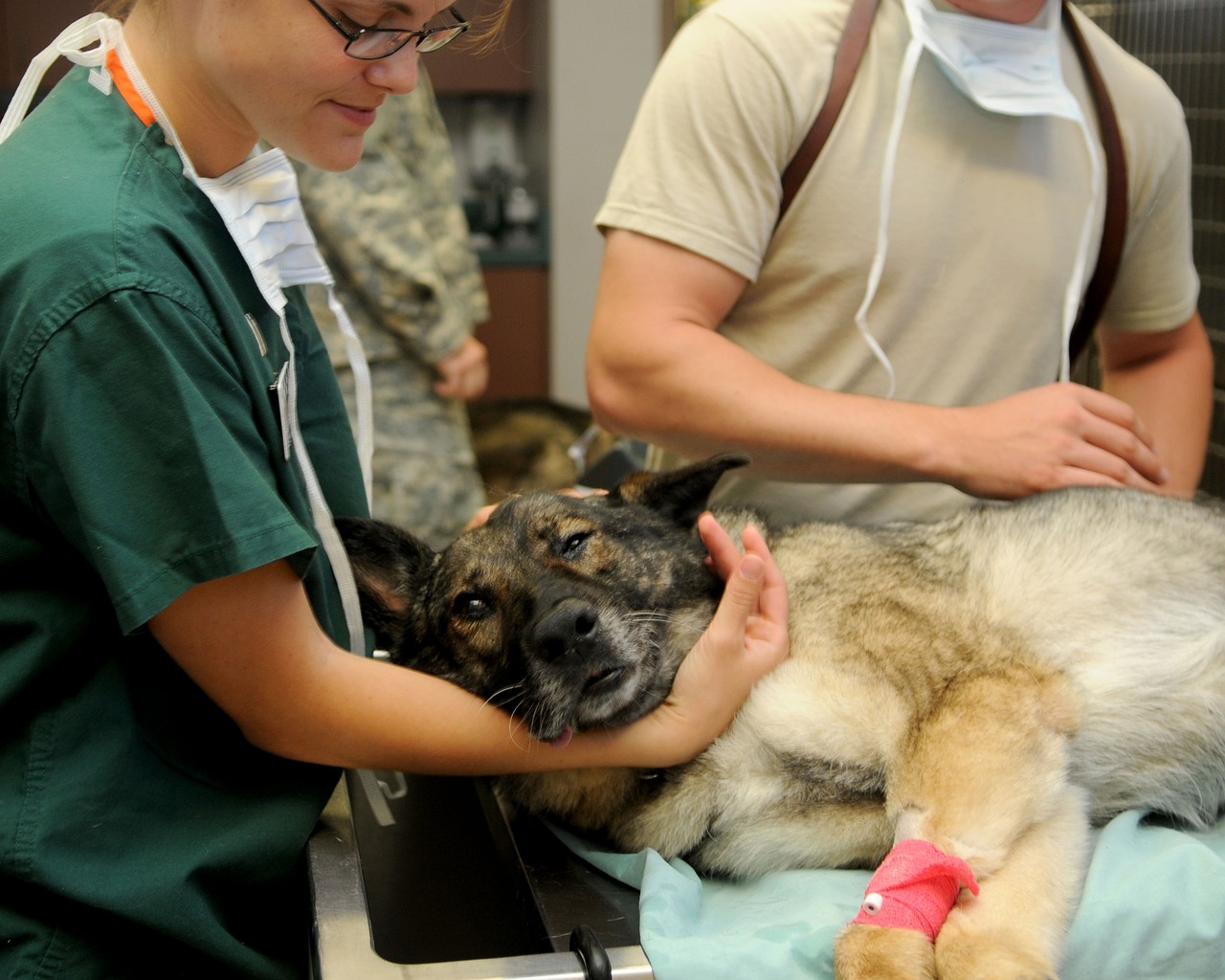Hire Clinic Coordinator
A Clinic Coordinator plays a vital role in the veterinary industry; moreover, this position is central to the smooth operation of clinics, ensuring that both staff and clients have consistently positive experiences. Because the coordinator orchestrates people, processes, and patient flow, hiring top talent immediately improves efficiency, strengthens communication, and elevates patient care. In addition, an effective coordinator reduces bottlenecks, supports doctors and technicians, and ultimately safeguards client satisfaction across busy, high-stakes days.
Why Hire a Clinic Coordinator?
A Clinic Coordinator is essential for the smooth functioning of any veterinary practice. Not only do they streamline day-to-day operations, but they also enhance team dynamics, which directly impacts service quality and patient outcomes. Furthermore, by centralizing communication and accountability, they prevent avoidable errors, shorten cycle times, and create a calmer environment for care delivery.
Operational Efficiency
To begin with, a Clinic Coordinator organizes daily operations so tasks are completed on time. Consequently, administrative friction drops, schedules stay on track, and clinicians can focus on medicine rather than paperwork.
Problem Solving
Because coordinators combine veterinary context with administrative expertise, they identify and resolve issues quickly. For example, they untangle scheduling conflicts, allocate resources, and maintain closed-loop communication among staff.
Client Satisfaction
Additionally, coordinators serve as the main point of contact for clients. Through proactive updates, clear estimates, and timely follow-ups, they improve client retention and build loyalty.
Team Leadership
Beyond logistics, coordinators foster a collaborative work environment. As a result, morale rises, handoffs improve, and frontline teams perform better during peak periods.
Data Management
Finally, they manage patient records and financial transactions with discipline. Therefore, data stays accurate and accessible—vital for compliance, reporting, and informed business decisions.
Types of Clinic Coordinator
There are several Clinic Coordinator profiles; accordingly, clarifying your needs first will accelerate a great hire.
General Clinic Coordinator
Oversees end-to-end clinic operations—staffing, scheduling, reception, inventory, and client relations—thereby maintaining day-to-day stability.
Patient Care Coordinator
Focuses on patient journeys: appointment setting, reminders, discharge instructions, and follow-ups. Consequently, pet owners feel informed and supported.
Administrative Coordinator
Centers on SOPs, forms, billing, and policy compliance. In turn, documentation stays consistent and audits proceed smoothly.
Marketing Coordinator
Leads community outreach, email campaigns, and social content. As visibility grows, so does new-client acquisition.
Training Coordinator
Plans onboarding and continuing education. Because skills rise across the team, quality and efficiency improve in parallel.
Where to Find Clinic Coordinators
Finding the right coordinator can be challenging; however, a mixed-channel approach improves both reach and fit.
Online Job Boards
Indeed and LinkedIn deliver broad exposure; yet, they can produce unqualified volume. Therefore, build a clear scorecard to screen fast.
Staffing Agencies
Specialized partners like Pulivarthi Group present pre-vetted candidates. Although fees apply, time-to-hire and risk typically drop.
Professional Networks
Veterinary associations and conferences often surface hidden talent. Nevertheless, this route requires ongoing participation and patience.
Social Media & Local Groups
Targeted posts can attract strong local candidates; still, you’ll want structured assessments to validate skill and reliability.
Hiring Challenges (and How to Solve Them)
Assessing Skills
Interviews alone rarely prove execution. Thus, add job simulations (phones, triage, scheduling, and EMR tasks) to evaluate real capability.
Cultural Fit
A great coordinator balances warmth with assertiveness. Consequently, include peer panels and scenario prompts to gauge collaboration and boundaries.
High Turnover
Because the role sits at the clinic’s “front door,” burnout is possible. Therefore, set realistic workload targets, cross-train, and rotate duties.
Experience vs. Potential
Over-indexing on years can overlook high-ceiling candidates. Instead, prioritize systems aptitude, communication, and coachability—then plan a 30/60/90 ramp.
Qualifications and Licenses
While credentials vary by practice, successful coordinators blend healthcare-office fundamentals with veterinary familiarity.
-
Degree in Veterinary Technology, Business, or Healthcare Admin
Helpful for grasping medical workflows and business metrics; however, equivalent experience can substitute. -
Certification in Veterinary/Medical Administration (nice to have)
Signals process rigor and compliance literacy. -
Experience in Veterinary Practices
Even six to twelve months in a clinic dramatically shortens onboarding. -
Leadership & Communication Skills
Clear writing, calm phone etiquette, and tact under pressure are non-negotiable. -
Systems Proficiency
EMR/PIMS (e.g., ezyVet, Cornerstone), payments, scheduling, and spreadsheet fluency.
Sample Clinic Coordinator Job Description
Job Overview
The Clinic Coordinator oversees daily operations and supports a high-quality patient experience. In collaboration with veterinarians and technicians, this role maintains schedules, facilitates client communication, and ensures accurate records and billing.
Key Responsibilities
-
Orchestrate schedules, room flow, and curb-to-checkout handoffs.
-
Manage phones, estimates, deposits, and follow-up communications.
-
Maintain accurate EMR entries, forms, and compliance checklists.
-
Coordinate inventory counts and vendor communication as needed.
-
Support onboarding, huddles, and SOP adherence across the team.
Required Skills
-
Excellent communication, organization, and time management.
-
Confident, empathetic client service and de-escalation.
-
EMR, scheduling, and payment platform proficiency.
Qualifications
-
Degree or equivalent clinic experience.
-
Prior veterinary/medical office experience preferred.
-
Familiarity with patient privacy and regulatory basics.
Interview Questions (with What You’re Measuring)
-
“Describe your veterinary admin experience.”
Depth across phones, EMR, billing, and scheduling; additionally, look for examples. -
“How do you prioritize when everything is urgent?”
Triage logic, use of calendars/queues, and escalation thresholds. -
“How do you lift client satisfaction?”
Proactive updates, callback SLAs, clear estimates, and empathy. -
“Share a time you resolved staff conflict.”
Neutral facilitation, follow-through, and documentation. -
“How do you ensure compliance?”
SOP usage, audit cadence, and accurate recordkeeping.
When Should You Hire a Clinic Coordinator?
You should hire when growth, seasonality, or complexity starts to outpace current capacity. For example, if clinicians are fielding phones, chasing records, or fixing schedules, care quality will eventually slip. Likewise, if no one owns callbacks and follow-ups, rechecks decline and reviews suffer. Therefore, bring in a coordinator when:
-
Doctors are doing admin work after hours.
-
Wait times and no-shows are rising.
-
Client complaints mention communication.
-
Schedules, inventory, or billing keep slipping.
-
You’re expanding hours, adding doctors, or launching new services.
How to Test Clinic Coordinator Skills
Because the role is execution-heavy, use practical, job-relevant exercises.
-
Role-Specific Assessments
Mock phone triage, email drafting, and estimate explanation. -
Real-World Tasks
Build a day’s schedule from requests; then resolve conflicts live. -
Past Project Reviews
Ask for examples: reduced no-shows, improved NPS, or quicker callbacks. -
Behavioral & Situational Prompts
“Two rooms open, three arrivals, one upset client—what happens first, and why?”
Cultural Fit: How to Assess It Well
Culture drives retention; therefore, evaluate alignment deliberately.
-
Situational Questions
“A client arrives late during a packed morning—what do you say and do?” -
Values Alignment
Share your values (e.g., empathy, ownership, transparency) and ask for stories that demonstrate each. -
Team Involvement
Add a short shadow; afterward, collect technician and CSR feedback. -
Work-Style Preferences
Discuss pace, autonomy, and feedback style to prevent misalignment later.
Average Salary (U.S. Benchmarks)
Clinic Coordinator compensation typically ranges from $45,000 to $65,000 annually, depending on market, responsibilities, and scope. Urban centers or multi-doctor practices trend higher; meanwhile, specialty practices often pay premiums for complexity. Additionally, performance bonuses tied to client satisfaction, schedule utilization, or revenue cycle KPIs are increasingly common.
SOPs to Standardize (and How to Build Them)
Standard Operating Procedures create clarity; consequently, they reduce variation and stress.
Patient Intake Procedure
Define greeting, verification, forms, estimate, and rooming. Include “if late/no-show” branches.
Record Management SOP
Detail EMR naming, attachments, audit cadence, and release of records. Add privacy safeguards.
Emergency Protocol
Outline triage cues, escalation paths, and room prep. Moreover, pre-assign roles for code situations.
Client Communication Guidelines
Set callback SLAs, message templates, and documentation rules to ensure consistency.
To create SOPs quickly, start with current best practices, map the workflow, add exception paths, and pilot with the team before publishing.
Retention: How to Keep Great Clinic Coordinators
Retention starts on day one; accordingly, plan a structured 30/60/90 ramp with clear goals.
-
Competitive Pay & Benefits
Pair salary with predictable schedules and wellness support. -
Supportive Environment
Recognize wins publicly; also, rotate duties to prevent burnout. -
Growth & Development
Offer CE stipends, cross-training, and leadership pathways. -
Work-Life Balance
Use staffing models that protect time off; additionally, enforce reasonable after-hours expectations.
Hire a Clinic Coordinator with Pulivarthi Group
Pulivarthi Group specializes in veterinary hiring; therefore, we present pre-vetted Clinic Coordinator candidates who match your systems, pace, and culture. From calibrated scorecards to scenario-based assessments, we reduce time-to-hire and increase long-term fit. If you’re scaling hours, adding doctors, or simply ready to improve client experience, we’ll assemble a tailored shortlist—so your team can focus on care while your front-of-house runs smoothly.














